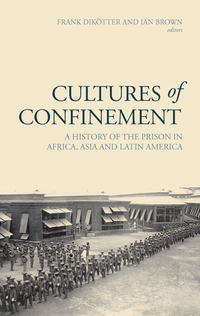Prisons are on the increase from the United States to China, as ever-larger proportions of humanity find themselves behind bars. While prisons now span the world, we know little about their history in global perspective. Rather than interpreting the prison's proliferation as the predictable result of globalization, Cultures of Confinement: A History of the Prison in Africa, Asia and Latin America (London: Hurst; Ithaca: Cornell University Press, 2007) underlines the fact that the prison was never simply imposed by colonial powers or copied by elites eager to emulate the West, but was reinvented and transformed by a host of local factors, its success being dependent on its very flexibility.
Complex cultural negotiations took place in encounters between different parts of the world, and rather than assigning a passive role to Latin America, Asia, and Africa, the authors of this book point out the acts of resistance or appropriation that altered the social practices associated with confinement. The prison, in short, was understood in culturally specific ways and reinvented in a variety of local contexts examined here for the first time in global perspective.
Contributors
Carlos Aguirre, University of Oregon
Clare Anderson, University of Leicester
David Arnold, Warwick University
Florence Bernault, University of Wisconsin-Madison
Ian Brown, School of Oriental and African Studies, London
Frank Dikötter, School of Oriental and African Studies, London
Anthony Gorman, University of Edinburgh
Co-edited with Ian Brown, Ithaca: Cornell University Press; London: Hurst, 335 pp., 2007
